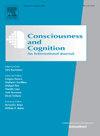Habitual control of instrumental behaviour requires conscious stimulus perception
IF 2
3区 心理学
Q2 PSYCHOLOGY, EXPERIMENTAL
引用次数: 0
Abstract
Habitual behaviour is commonly assumed to operate outside of conscious control, deliberation, or awareness, driven by stimulus–response (S-R) associations rather than goal-directed evaluation. Here, we investigate whether habitual instrumental behaviours can be triggered by stimuli that are prevented from entering subjective awareness with subliminal presentation. In a preregistered within-subjects study (N after exclusions = 75), we examined this question by employing a symmetrical outcome revaluation task. Participants underwent extensive instrumental training, forming strong S-R associations, before completing two testing stages: a conscious stage with fully visible stimuli, and an unconscious stage where stimuli were rendered subliminal via visual masking. In the conscious condition, participants exhibited habitual control, responding more accurately to habit-congruent (still-valuable, still-non-valuable) stimuli than to habit-incongruent (upvalued, devalued) stimuli, replicating prior findings. However, in the unconscious condition participants did not exhibit above-chance accuracy, and responses were not biased toward habitual actions, suggesting that subliminal stimuli were unable to elicit either habitual or goal-directed responses. These findings challenge the notion that habitual control of instrumental behaviour can function independently of stimulus awareness and suggest that conscious access to action-relevant cues may be necessary even for well-established S-R associations to guide behaviour.
工具行为的习惯性控制需要有意识的刺激知觉。
习惯行为通常被认为是在意识控制、考虑或意识之外运作的,由刺激-反应(S-R)关联驱动,而不是目标导向的评估。在这里,我们研究是否习惯性的工具行为可以被阻止进入主观意识的潜意识呈现刺激触发。在一项预登记的受试者内研究(排除后N = 75)中,我们通过采用对称结果重估任务来检验这个问题。在完成两个测试阶段之前,参与者接受了广泛的工具训练,形成了强烈的S-R关联:一个有意识阶段,有完全可见的刺激,以及一个无意识阶段,刺激通过视觉掩蔽呈现在潜意识中。在有意识的条件下,参与者表现出习惯控制,对习惯一致(仍然有价值,仍然没有价值)的刺激比对习惯不一致(价值提高,贬值)的刺激反应更准确,重复了先前的发现。然而,在无意识条件下,参与者并没有表现出高于机会的准确性,反应也没有偏向于习惯性行为,这表明潜意识刺激既不能引起习惯性反应,也不能引起目标导向的反应。这些发现挑战了工具行为的习惯控制可以独立于刺激意识而起作用的观念,并表明有意识地获取与行动相关的线索可能是必要的,甚至对于建立良好的S-R关联来指导行为也是必要的。
本文章由计算机程序翻译,如有差异,请以英文原文为准。
求助全文
约1分钟内获得全文
求助全文
来源期刊

Consciousness and Cognition
PSYCHOLOGY, EXPERIMENTAL-
CiteScore
4.30
自引率
8.30%
发文量
123
期刊介绍:
Consciousness and Cognition: An International Journal provides a forum for a natural-science approach to the issues of consciousness, voluntary control, and self. The journal features empirical research (in the form of regular articles and short reports) and theoretical articles. Integrative theoretical and critical literature reviews, and tutorial reviews are also published. The journal aims to be both scientifically rigorous and open to novel contributions.
 求助内容:
求助内容: 应助结果提醒方式:
应助结果提醒方式:


